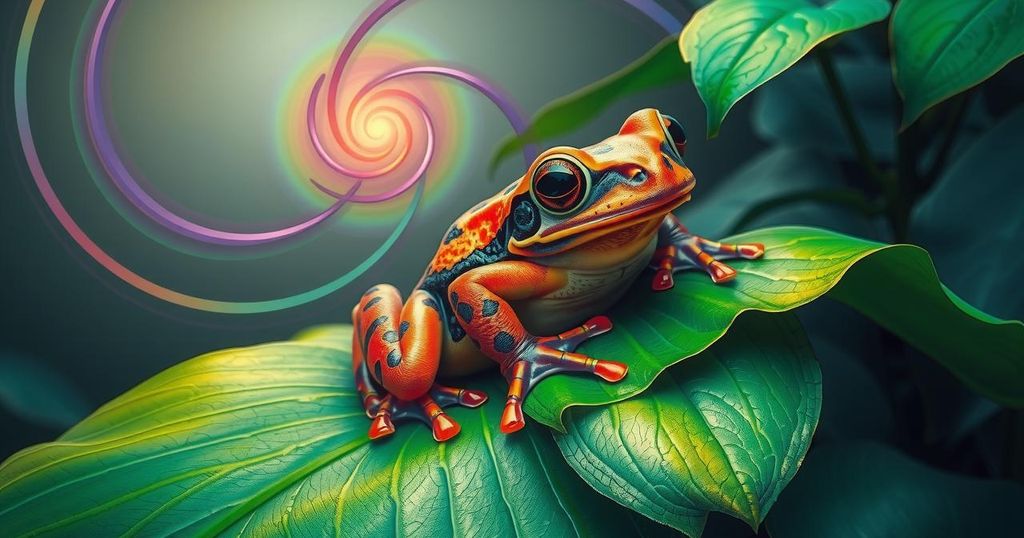Kyrgyz lawmakers are addressing concerns about teenagers licking psychedelic toads as a form of substance abuse. Proposed amendments include bans on certain toads with psychoactive properties. The discussions reveal the need for clarity and caution in addressing public health risks. The Bufo alvarius toad and its psychoactive secretion, 5-MeO-DMT, are central to this legislative dialogue.
Concerns regarding teenagers licking the skins of psychedelic toads emerged as a significant topic for lawmakers in Kyrgyzstan. During a parliamentary session, MPs debated potential amendments to legislation aimed at combatting the illicit drug trade. The conversations highlighted the necessity to address the risks posed by psychedelic substances derived from certain toads, particularly the Bufo alvarius toad, which secretes potent psychoactive compounds.
Local authorities in various countries, including the United States, have issued warnings against the ingestion of toads and frogs that release toxic substances capable of inducing severe hallucinations and illness. Notably, Kyrgyzstan’s parliament proposed a ban on the import of such amphibians as a precautionary measure to protect the youth from harmful substances. Lawmakers discussed the implications of this proposed legislation, acknowledging its importance amidst rising concerns about drug-related issues.
MP Iskhak Masaliyev raised concerns regarding the language used in the draft amendments that pertained to living organisms, questioning the broader implications of the law for wildlife. In response, Deputy Health Minister Kaarmanbek Baidavletov clarified that the bill specifically aims to prevent the importation of certain toads and frogs known for their narcotic properties. In an exchange reflecting the seriousness of the issue, the necessity of careful legislative wording was emphasized.
The Bufo alvarius toad, also known as the Colorado River toad, was identified in media reports for its ability to secrete the psychoactive compound 5-MeO-DMT. This substance, considered a powerful alkaloid, can induce intense hallucinations and feelings of euphoria when ingested or inhaled. Such phenomena are reported in other cultures as well, particularly within shamanic rituals in South America, which further underscores the complexities surrounding the use of substances from amphibians.
The rising trend of teenagers using psychedelic toads as a substance for recreational highs has prompted concerns among lawmakers in Kyrgyzstan. Similar issues have surfaced in several countries where the ingestion of amphibians possessing psychoactive toxins poses public health risks. Effective legislation is critical to address these challenges and protect young individuals from the potential dangers associated with these substances. Lawmakers are seeking to refine existing laws to counteract the illicit drug trade effectively.
The discussions in Kyrgyzstan’s parliament regarding the prohibition of psychedelic toads reflect a significant legislative response to emerging health concerns among youth. By examining both public safety and the nuances of wildlife conservation, lawmakers are attempting to develop effective measures against drug misuse. The complexity of substance regulation is highlighted by the existence of cultural practices surrounding these substances in other regions, warranting a careful approach to legislative language and intent.
Original Source: www.intellinews.com






